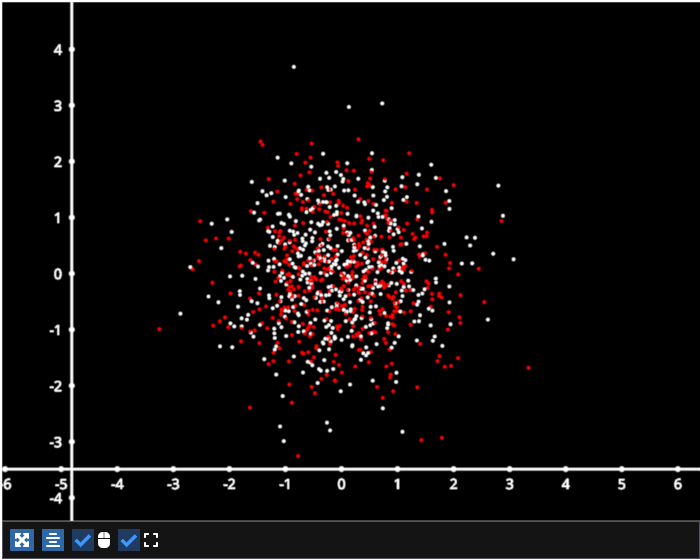Note
Go to the end to download the full example code.
Scatter Plot Data Slicing#
Example showing data slice for scatter plot.

/home/runner/work/fastplotlib/fastplotlib/fastplotlib/graphics/_features/_base.py:18: UserWarning: casting float64 array to float32
warn(f"casting {array.dtype} array to float32")
# test_example = false
import fastplotlib as fpl
import numpy as np
figure = fpl.Figure(size=(700, 560))
# create a gaussian cloud of 5_000 points
n_points = 1_000
mean = [0, 0] # mean of the Gaussian distribution
covariance = [[1, 0], [0, 1]] # covariance matrix
gaussian_cloud = np.random.multivariate_normal(mean, covariance, n_points)
gaussian_cloud2 = np.random.multivariate_normal(mean, covariance, n_points)
# use an alpha value since this will be a lot of points
scatter1 = figure[0,0].add_scatter(data=gaussian_cloud, sizes=3)
scatter2 = figure[0,0].add_scatter(data=gaussian_cloud2, colors="r", sizes=3)
figure.show()
scatter1.data[:500] = np.array([0 , 0, 0])
scatter2.data[500:] = np.array([0 , 0, 0])
# NOTE: `if __name__ == "__main__"` is NOT how to use fastplotlib interactively
# please see our docs for using fastplotlib interactively in ipython and jupyter
if __name__ == "__main__":
print(__doc__)
fpl.loop.run()
Total running time of the script: (0 minutes 0.800 seconds)
